On March 28 and 29, Tsinghua University’s Center for International Security and Strategy, or CISS, and the China Development Research Foundation jointly hosted a webinar focusing on the COVID-19 pandemic and cooperation between China and the United States. It featured 11 renowned experts and scholars from China and 18 from the U.S. The Chinese participants included members of the CISS academic committee, adjunct fellows and special guests. Most of the American scholars were affiliated with think tanks and universities, including Harvard, Yale and Stanford universities; the University of Pennsylvania; University of California, San Diego; the Brookings Institution; and the Carnegie Endowment for International Peace. The CISS, summarized the remarks with the consent of the speakers.
CHINESE SIDE
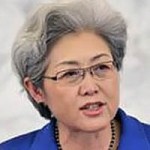
Fu Ying, Chair of CISS at Tsinghua University and former vice minister of foreign affairs of China
This pandemic is the third major non-traditional security challenge that has refocused the world’s agenda since we entered the 21st century. On the previous two occasions, the 9/11 terrorist attack in 2001 and particularly the financial crisis of 2008, the U.S. joined hands in solidarity and cooperated with other major countries through multilateral processes, which saw the world through the havoc. Yet this time the U.S. has demonstrated neither commitment to solidarity and cooperation nor willingness or capacity to take global leadership.
Faced with this invisible, non-traditional yet ferocious enemy, the model of hegemonic dominance, which prioritizes geostrategic competition and zero-sum games at the expense of addressing the real issues, cannot deal with the new type of international responsibility in our time of globalization. It can now be seen that the lack of leadership, instead of being just a strategic assumption, is already a really big problem that endangers the stability of the world and its capability to tackle international issues.
The universal and pressing call in the international community is to have global cooperation, of which coordination between China and the U.S. provides an indispensable foundation. China is providing support to many countries in the world, and most of the collaboration has been smooth and effective. However, China’s cooperation with the U.S. on the pandemic has been less than satisfactory.
Undoubtedly, China and the U.S. are countries on the world stage that can determine the style and direction of future international politics. Whether the two can resolve their differences and carry out effective cooperation within the existing international system matters a great deal for the world. Their failure to do so, as well as possible malign competition, will not only hurt the interests of both countries but also undermine global stability, because in that kind of situation many other countries will be forced to choose between them, and the world will splinter into new blocs.

Lu Mai, Vice chairman of the China Development Research Foundation and secretary-general of the China Development Forum
First, we should stop blaming each other for what was done before and try to find solutions instead. COVID-19 is not what we thought it was when it first appeared. It was not normal flu, as some had suggested, and even now we have not fully figured it out. As a result of the lack of understanding, the Wuhan government, as well as governments in Europe and the U.S., all made some mistakes at early stages. But now we know the severity of the disease and have taken similar steps in fighting it, and we should continue working on solutions.
Second, since 2018, the bilateral relations of China and the U.S. have worsened to the extent that it is hard to image that so many problems and concerns have been piled up along the way. But right now, we have a common interest to fight COVID-19, and we must seize the opportunity to work together. The U.S. has very strong research capacity and China has accumulated rich hands-on experience in the past two months dealing with the disease. We could build on previous cooperation between the CDCs of both sides, calling for experts and medical personnel to work together in a committee that aims to find ways to stop the spread of the virus. At this special time, information sharing is crucial. We are not only trying to contain the virus, but also trying to keep our economies running to make sure people’s welfare is not compromised.
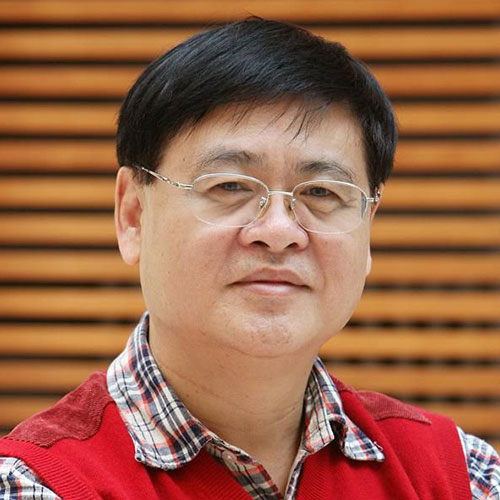
Wang Jisi, President of the Institute of International and Strategic Studies at Peking University and a member of the academic committee of CISS at Tsinghua University
Before the coronavirus broke out, I observed three trends in world politics. Now, all these trends will likely be accelerated.
The first is worldwide socioeconomic inequality between nations and within each society. As the disease is spreading out rapidly in less-developed and less-stable countries, the damage there will be more devastating. Refugees and immigrants will be especially vulnerable to the coronavirus.
The second trend is the strengthening of government control over society and the economy, and the emergence of strongman politics. Under the current circumstances, it may not be bad for governments to play a greater role in combating the disease. However, it also runs risks.
The third trend is an unhealthy combination of populism and ethnic nationalism, and even racism. Unfortunately, these unhealthy sentiments in identity politics have been exacerbated during the crisis. The blame game against each other regarding the origin of the COVID-19 is not just between U.S. and Chinese officials but also widespread in hate speech on American and Chinese social media platforms.
Here I express one hope for America and two hopes for the bilateral relationship. As an America watcher in China, I am frustrated by America’s political polarization, which has done so much harm to your nation and tainted the U.S. image in the world. I sincerely hope that America will become more united in fighting this deadly threat.
My first hope for China-U.S. relations is that people in both governments will refrain from promoting conspiracy theories against the other regarding the pandemic. My second hope is more specific. There are over 2 million people who were born in China but live in America today. Some of them intend to return to China at least temporarily. Their treatment is a politically sensitive issue. Beijing and Washington should join hands to deal with this problem.
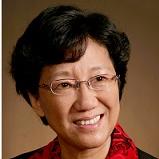
Yao Yunzhu, Senior adviser to the China Association of Military Sciences and member of the academic committee of CISS at Tsinghua University
The threat of COVID-19 has presented us with a rare chance for cooperation. But so far we used it as an opportunity for competition. The pandemic is a security threat to all human beings. It is high time for the two most powerful countries in the world to prioritize cooperation on COVID-19 over our interactions as strategic rivals.
In that spirit, I would like to propose several things:
1. The two top leaders take the leadership role and communicate regularly regarding COVID-19 to set a tone of cooperation.
2. Stop the war of words and refrain from provoking each other. Many Chinese people perceive the U.S. as throwing rocks at China when it is trapped in a deep well.
3. Jointly propose initiatives in multilateral frameworks, such as the United Nations Security Council, on cures and vaccine development, as well as on principles and rules for production and distribution.
4. Set up information and data sharing institutions, which are essential to developing cures and vaccines, and promote best practices in containing COVID-19.
5. Jointly propose safety and sanitary standards for cross-border travels, such as scanning of body temperatures, reporting travel history and tracking movement for the last 14 days; and propose standards for personal data collection and privacy protection.
6. Jointly work on the rules and procedures to protect and assist citizens of different countries who are infected while in international space, such as a cruise on the open sea.
7. In the UN Security Council, make a joint call for a cease-fire in all armed conflicts in the world today. Also, call for stopping or reducing military operations.
8. Major powers should think about measures to implement the Biological Weapons Convention and verify compliance, and maybe to reenergize the stalled disarmament process.
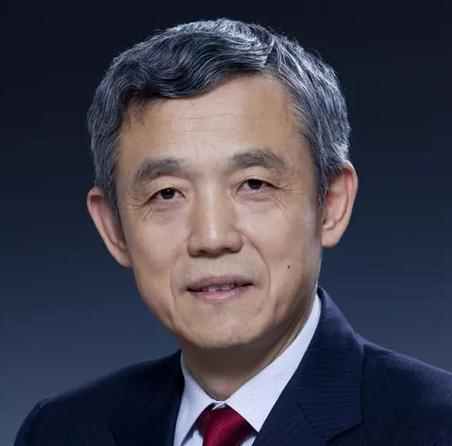
Xue Lan, Dean of Schwarzman College, Tsinghua University
This pandemic could not have happened at a worse time. In the last few years, the U.S.-China collaboration in basic research and innovation has declined to its lowest point since the 1970s. Under such circumstances, the most important thing for our two governments to do is enable scientists and businesses to cooperate, if no joint effort is possible.
First, the restrictions of scientific collaboration should be removed for basic research among scientists, which will stimulate lots of collaboration, while at the same time asking the national science foundations in the U.S. and China to develop a set of principles for international research collaboration to address concerns over occasional abuses.
Second, vaccine research in the U.S. and China should be coordinated through simultaneous multiple approaches, working with the WHO to develop ways to govern the production and distribution of a vaccine.
Third, medical doctors in major countries should coordinate to update treatment plans and protocols. China has updated its treatment protocols many times. With so many European and U.S. patients, there are lots of things to be learned and shared. Medical doctors in China and the U.S. can play leading roles in this effort.
Fourth, restrictions on collaboration related to the fight with COVID-19 should be loosened based on the IPR principles adopted in the trade agreement.
Fifth, the two CDCs should adopt a joint “ahead of the curve” type of research on what are the effective ways to contain a possible resurgence of the virus when society gets back to normal operations.
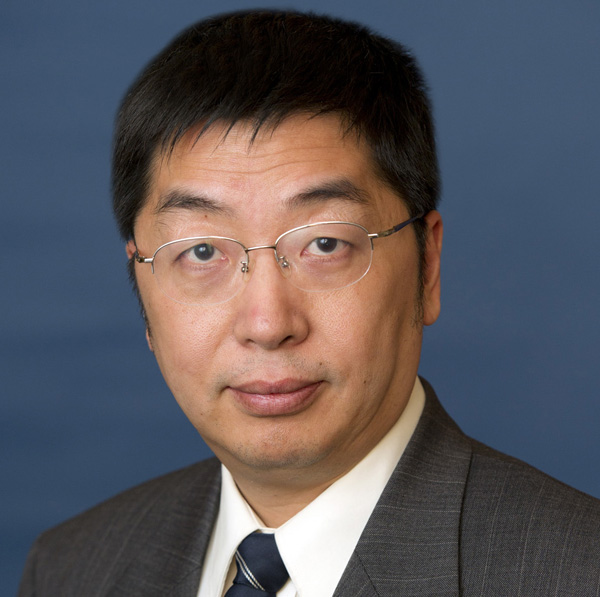
Li Bin, Professor of international relations and adjunct fellow of CISS at Tsinghua University
The pandemic is very different from many other political and economic issues — for example, the trade war and power competition. In those competitions, many people believe that your gain comes at my loss. For COVID-19, your loss is also my loss. If there is a pandemic anywhere in the world, we are not safe. If we did not understand this after the breakout of the pandemic in my hometown, Wuhan, we should understand it today.
My suggestion is that we should send our sympathy, encouragement, and assistance to each other. Stopping the propaganda war is only the first step. It is not enough. If our governments are not yet ready to do the job well, we scholars should do it. We should tell the governments and the public that we have to help each other. And we should put together cooperation by ourselves.
The COVID-19 virus is a natural disaster. It moves in its own way. It does not follow any ideology. When we fight against the virus, we have to respect scientists and medical doctors who work on the science. To have a better chance to stop the pandemic, the scientists and medical doctors need to have scientific exchanges among themselves.
In the past few years, the political atmosphere for scientific exchanges has not been very good. My second suggestion is that we should call on our governments to support the engagement and exchanges of scientists of our two countries.
Last, I would like to emphasis that mild cases are also infectious. We need strategies to deal with mild cases. If we don’t, it will be difficult to stop the pandemic. I suggest our American colleagues pay attention to this.
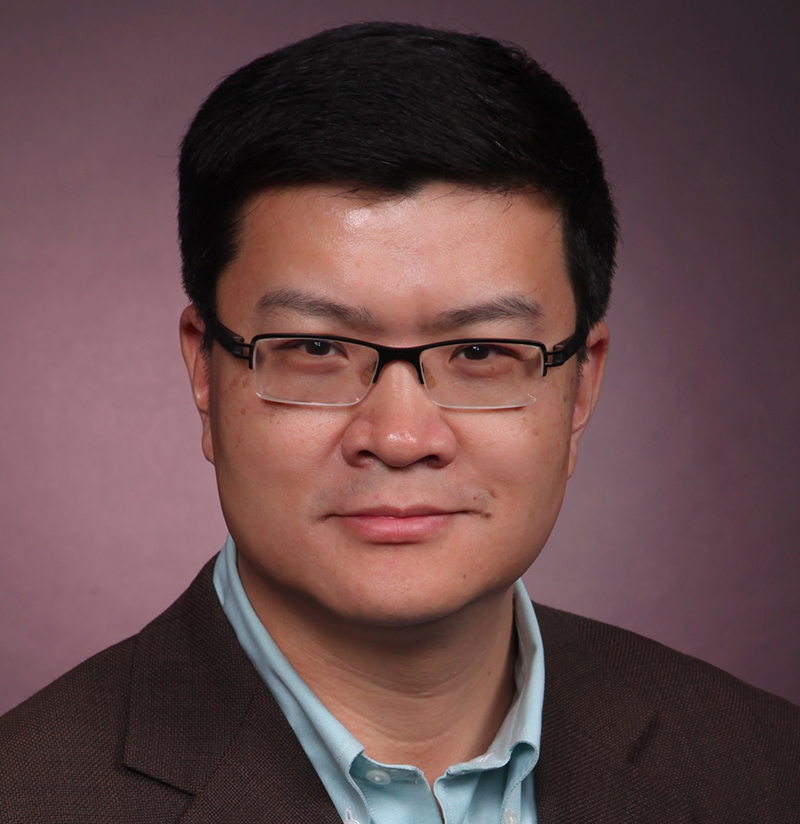
Da Wei, Assistant president of the University of International Relations and fellow of CISS at Tsinghua University
From at least three dimensions, COVID-19 can be defined as the first global crisis ever experienced by humans.
The first dimension is the nature of the threat. In almost all the major crises in the past century, the threat came from humans themselves. Two world wars and 9/11 involved a group of people attacking other groups of people; the Great Depression from 1929 and the financial crisis of 2008 were directly related to government policies or the capitalist economic model. COVID-19 is caused by a virus that was not made by people intentionally.
The second dimension is the geographic sphere. Unlike Sept. 11 or the 2008 financial crisis, which had only one epicenter — the U.S. — the coronavirus has already had a severe impact on billions of people and the whole globe. East Asia, North America and Europe, the three major economic centers, have been the epicenter in succession.
The third dimension is time. It has become clearer that this pandemic will probably continue to exist for a year or longer before we have an effective therapy or reliable vaccine. With very strict measures locking down the whole country, China can contain it temporarily within its borders but cannot exclude the risk of a reemergence so long as the virus is still active in other countries.
No single country alone can defeat a global crisis — that’s an obvious fact. Countries have no other choice but to cooperate and collaborate. Unfortunately, the two most important countries in this pandemic, China and the U.S., have been suffering from a rapid deterioration of relations over the past three years. The pandemic has further deepened the distrust. COVID-19 can either become the “Sputnik moment” that declares the descent of a new cold war, or a chance that the two countries can shift the negative momentum in bilateral relations and defeat the common threat along with other countries and partners in the world.

An Gang, CISS fellow at Tsinghua University and senior editor for China’s World Affairs Magazine
Excessive politicization of bilateral cooperation on pandemic containment must be overcome.
My concern is whether Beijing and Washington can engage in effective cooperation to fulfill their responsibility for leading the global battle. It depends on whether both can cooperate in a more profound way.
What is alarming is that political arrogance was put above scientific awareness, creating so-called political correctness against each other and holding one side back from giving an objective evaluation on the other side’s efforts in epidemic prevention. More important, this makes it difficult for one side’s domestic health community to draw on the other side’s experience and information.
U.S. lawmakers continue to proceed with legislation that interferes in China’s internal affairs, even as China is sparing no effort to combat the epidemic. The most recent one is the TAIPEI Act of 2019.
We must overcome the interference and detriment caused by the excessive politicization of bilateral cooperation on pandemic containment. We also need to let our disease control and prevention centers and medical personnel carry out more extensive, direct and profound information sharing and technical exchanges in a more spirited manner. Governments on both sides should grant them ample space for discretion and refrain from resorting to administrative intervention. Media outlets from both nations should thoroughly report their deeds in an objective tone.
AMERICAN SIDE

Joseph Nye, University distinguished service professor and former dean of the Kennedy School of Government at Harvard University
COVID-19 is a test of power and strategy. Both the U.S. and China have failed so far. World politics is changing under the influence of globalization and the information revolution. And we should deal with “power with” rather than “power over” others.
To avoid being badly damaged by trying to solve the problems of COVID-19 alone, step one, we should stop the propaganda warfare. Whatever small gain one or the other may make is nowhere near as the important as the joint gains which we are losing by failing to cooperate.
Step number two is to start sharing information. We should be starting to work together now in sharing information and how we are going to limit the negative effects of the second wave of the virus.
A third thing we can do is to make it a joint effort of our two countries to bolster the World Health Organization, as well as the world economy, which is going to have a terrible setback in all countries as a result of this.
If there is any lesson from COVID-19 so far, it is that we have not yet learned it. We centrally focus too much on competition and not enough on cooperation.

Graham Allison, Professor and former director of the Harvard Kennedy School’s Belfer Center for Science and International Affairs
In my article “In War Against Coronavirus: Is China Foe— or Friend?” I argue that while the consensus in Washington has moved toward defining China as part of the problem, we cannot succeed in this war against the coronavirus without making China part of the solution.
We have to recognize that this threat is layered on top of deep, inescapable structural realities. China is a meteoric rising power that really is threatening to displace the U.S. from the top of every pecking order. But if either nation is to succeed in meeting the existential threat posed by the pandemic, they must also be essential partners.
Is the coronavirus really an existential threat that neither the U.S. nor China can successfully defeat on its own? As best I can understand, the answer is yes. Even if one of them drives new infections within its borders to zero, can it hermetically seal its borders? I find that almost impossible to imagine. So if this is genuinely an existential crisis for each, and if neither can defeat it without the cooperation of the other, then if the two nations are rational their only viable option is to find ways to organize the necessary cooperation.

Charlene Barshefsky, Senior international partner at WilmerHale and former U.S. trade representative
The pandemic has resulted in both a supply and demand shock. The IMF and World Bank have thus already indicated that we are now in a global recession of significance.
The Chinese economy saw a sharp decline in domestic demand and exports. This follows on the already considerable slowing of Chinese economic growth and increasingly high debt levels over the preceding three years. Additionally, it is already clear that restarting the economy will take time. U.S. economic contraction is projected to range from 10 to 20 percent in the first quarter of this year, with greater contraction projected in the third quarter.
COVID-related bilateral tensions will accelerate demands for decoupling by some, not only on the technology side but on the manufacturing side with respect to supply chains. The U.S. and China worked well together after 2008 and 9/11. Things are different now, and as this crisis has unfolded, erosion of the relationship seems to have intensified.
To better handle the pandemic and its aftermath, both sides have to stop the dangerous blame game. Export bans and tariffs, particularly, but not exclusively, on medical devices, personal protective gear and pharmaceuticals should be lifted. The U.S. should immediately provide visas for medical experts and other necessary personnel. It should also stop trying to disrupt the supply chain. The U.S. needs more critical imports, not less. China should be cautious about creating an excess supply of steel, commodities and other goods; there is little global warehouse capacity remaining and, in any event, all countries hard hit by COVID-19 will need to get their own industries back in successful operation. And if China is unable to fully implement the recently concluded trade agreement with the U.S., it should give the U.S. a heads-up, so that an amicable arrangement can be worked out during this challenging period.

Susan Shirk, Research professor and chair of the 21st Century China Center and professor at the School of Global Policy and Strategy at the University of California, San Diego. She is also a former deputy assistant secretary of state in the U.S.
China and U.S. can be decisive in organizing international action. I recommend that vice president Mike Pence and Premier Li Keqiang, who lead the two countries’ working groups on the epidemic, start communicating and coordinating frequently. Establishing this channel could operationalize the commitment of the two presidents.
They could start clearing the roadblocks to deal with immediate medical and public health needs. They could also start on an international initiative to address the needs of the developing world. International actions could be under a framework like the G20 to develop a vaccine and treatments, and to establish a framework on its distribution.
Through this channel, they can show the world that they can put aside the disputes for the time being and are actively coordinating their response to the pandemic. They’ll also help strengthen governmental authorities will to act. They’ll give confidence to people that these governments are capable of working together. This will provide much-needed hope, as when the Soviet Union and the U.S. jointly eradicated smallpox during the Cold War. This high-level cooperation will also send signals to other governments that other disputes should be called off for the time being.
The operational response channel at the leadership level should help reduce bureaucratic and political obstacles, too. We have to remove restrictions, and we have to get engineers and scientists working together. We need to have an agreement that these things will be open source, so everyone can take advantage of them.

Cheng Li, Director of the John L. Thornton China Center at the Brookings Institution
I was a medical doctor by training in China about 40 years ago. I worked at an infectious disease hospital in Shanghai, specializing in the Hepatitis B virus. In the early 1980s, more than 10 percent of the Chinese population was infected by HBV. It was one of the most deadly diseases in the country. As a doctor, I witnessed death almost every week.
But the situation dramatically changed thanks to a remarkable development in 1989 when the American pharmaceutical company Merck transferred, without making a profit, its newly developed HBV vaccine to China. As a result of collaboration, a few years later China successfully produced its first batch of HBV vaccines. Every year, 20 million newborns in China take the HBV vaccine, cutting the transfer of infection from mothers to children by 97 percent within 20 years. By 2014, the vaccine had prevented 28 million HBV infections and 5 million deaths.
I shared this story not because I wanted to emphasize only the American generosity. There are other moving examples of both sides reciprocating generous support in a time of need. We are now all at a historical moment, the “humanitarian moment” of our lifetimes. This is not a time for cultural comparisons, debates over political systems or geopolitical strategic thinking. What the U.S. and China should do, first and foremost, is focus on saving lives and stopping the spread of the virus in both countries and around the world. Medical cooperation — exemplified by what Merck did decades ago — should provide enduring inspiration to guide us now.

Avery Goldstein, Director of the Center for the Study of Contemporary China at the University of Pennsylvania
Even as the COVID-19 pandemic continues, and even though many facts about its outbreak and its ultimate course are uncertain, it is clear that the global response thus far has been marked by colossal failures. There are many reasons for this, but I raise just two big and important realities of international life that help explain the regrettable failure of the United States and China to mount a more effective response to the transnational challenges of the pandemic.
First, the absence of a governing authority standing above states — or the condition of anarchy — compels every state, including China and the U.S., to worry about the possibility that they will need to provide for their own security and worry about their vulnerabilities. With the growing rivalry between the U.S. and China, both have shifted from focusing on “win-win” solutions to worrying about “who wins more?” The response to the pandemic in the U.S. and China has been shaped by and reinforced fears about the benefits of cooperation. It has exposed the vulnerability of supply chains and seems likely to accelerate the costly U.S.-China decoupling that was already underway.
Second, in today’s international system, the United States and China are states whose capabilities set them apart from all others on the global stage. In a world of two superpowers, each monitors the other more closely and competes more widely. Each worries that the other’s gains might come at its expense and knows that no other state can counter the dangers this could pose.
The recently intense and pervasive U.S.-China rivalry has colored their response to the pandemic. Each has been sharply critical, branding the other’s offers of international assistance as cynical attempts to exploit the crisis for political gain in their global competition.
Though disheartening, another consequence of the outsized role that the U.S. and China play in today’s world offers a reason for hope: Their massive capabilities put them in position to mobilize an international effort to deal with the pandemic should they decide to do so.
Although these two international circumstances have shaped the global failure to respond effectively to the pandemic, so too have the mistakes made by leaders in Beijing and Washington. The early resort to the “blame game” on both sides added obstacles to the inevitable difficulties of bilateral cooperation. Inasmuch as many believe that both countries are now headed by strong leaders, responsibility for this mutual recrimination ultimately rests with them. They have the ability not only to insist that their subordinates stop indulging in such counterproductive rhetoric but also have the obligation to hold subordinates who persist in it accountable.
Finally, I offer two suggestions for the leaders in both countries that would improve chances for a more effective response to the transnational challenges the pandemic poses:
1. They and their officials should stop using the toxic, undisciplined format of social media to air their disagreements.
2. They should empower the experts to work the problem— especially scientists, who have a mastery of the facts, and diplomats, whose experience prepares them for the hard work of managing, if not always resolving, areas of disagreement.
